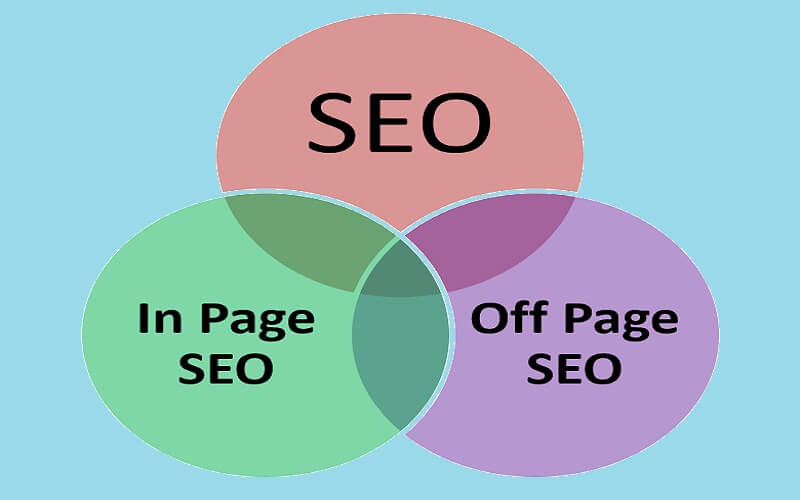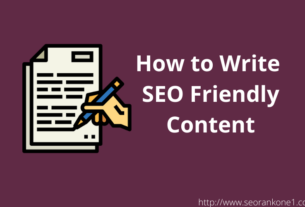“Search engine optimization,” or SEO, helps get your business the online attention it deserves. You’ll increase your search engine ranking by improving your website’s SEO. The better your SEO, the more search engines like Google or Bing will like it, and the higher you will rank. When people use keywords related to your business, you want them to find you.
The whole subject of SEO can seem mysterious and complex to the uninitiated. But, once you understand SEO basics, it’s a straightforward process.
SEO is not one monolithic thing. Instead, SEO consists of several smaller components working together as a whole. Moreover, improving the SEO will be different for each website. For example, some might need more and better backlinks, while others need optimized content. Therefore, each SEO project is unique.
When baked into your website, technical SEO, engaging, SEO optimized content, on-page SEO, and off page SEO are the ingredients that can push your website to the top.
By understanding the main components of SEO and how they work together, your website can improve its search engine ranking. As a result, your business will attract more customers while improving its online reputation.
What is Technical SEO?
Technical SEO works behind the scenes to make it easy for search engine bots to crawl and index your website. Do not overlook technical SEO since its effect is profound.
In addition to correcting coding errors, technical SEO makes it easier for search engines to identify the keywords people search. If you are using something like WordPress, technical SEO is automatically updated. However, your site may still need a robots.txt document and a site map for the search engines.
A technical SEO audit can:
- Clean up your pages, so that search engine bots can quickly and easily index and catalog them.
- Ensure that your website is mobile-friendly. More search engines, including Google, index websites on a “mobile-first” basis. Furthermore, smartphones conduct more searches. Therefore, you want your site’s mobile experience to be fast and easy.
- Make sure that your site is running fast and smooth. Search engines also factor in load-time when it ranks websites. You don’t want to lose customers due to a slow-loading website.
SEO Optimized Content
According to Digital Authority Partners, your website’s content is key to SEO and a positive user experience. In addition to effectively using keywords, your content should be easy to read and highly informative. Effective content gives people the information they seek. Optimizing your content further bolsters your SEO, ensuring the user has found the website with the products, services, and information they need.
Improving your content for better SEO:
- Quickly let the user know who you are and what you offer.
- Let the user know what differentiates you from similar companies offering the same products or services.
- Use your keywords logically and appropriately throughout your blog posts.
- Ensure that your content is easy to read using correct grammar and short sentences. Also, divide your content into short sections by using headers.
- Don’t just sell. Write content that informs and educates your website visitors.
There is a saying that “content is king.” You can make it to the top of the search engines, but if your content doesn’t engage the user, they’ll click away. If they click away, you’ve lost a customer. Therefore, writing your content from the user’s perspective is critical. You need to provide the information they were looking for while highlighting how your company can meet their needs.
On-page SEO Works Hand-in-Hand with Optimized Content
Content forms the bulk of your on-page SEO, but other SEO elements are also essential.
Metatags are the snippets of text that appear on search results under the page title. Both the page title and metatag should contain the page’s keywords.
If building your website with HTML, you’ll need to place the meta tag in the page’s code. If you use WordPress, you’ll need to install an SEO plugin; SEO plugins should have a box to type in your metatag. Otherwise, with WordPress, search engines often use the first sentence with the keyword as a metatag.
Meta tags must be short, between 120 to 150 characters, and the point, accurately describing the page. They should also entice the user to click through to your site.
Page titles are also significant. The title should contain the keywords, entice clicks, and be around 60 characters in length.
Alt-image tags are also an essential component of on-page SEO. Alt-image tags should accurately describe the picture while appropriately using keywords. Also, optimize your images to load quickly.
Improving On-page SEO:
- Work your keywords into your page titles and metatags.
- Also, use your keywords within the content as section headers.
- Optimize your images to load quickly.
- Use alt-image tags that contain your keywords.
By appropriately using keywords, on-page SEO lets the search engines know that your pages are relevant to search queries. Once someone clicks through to your page, it should load quickly. Most of all, it should engage users with the content they need.
Off-page SEO Connects You with Like-Minded Websites
Off page SEO involves getting backlinks to your site from other quality websites. This type of SEO allows visitors from other websites to click through to yours and counts with the search engines.
Guest-blogging is a great way to get backlinks from authoritative sites. In addition, this involves writing an informative blog post for the other site in exchange for a link.
In addition to building links from authoritative, relevant sites, review sites and social media mentions also are essential. Sites like Yelp and Yellow Pages often come up at the top of local searches, and you need to take advantage of this. Claim your business listing, optimize it on review sites, and manage your reviews.
Improving Off-page SEO:
- Identify relevant link partners and propose writing a guest post. However, when it comes to backlinks, sometimes less is more. A handful of highly-rated website backlinks will count over 1,000 links on low-ranked websites.
- Claim and optimize your listings on review websites, and manage your reviews; address any negative reviews, and thank users for positive reviews.
- Create a positive social media presence across all relevant platforms.
Outsource Your SEO Strategy
Understanding how the main components of SEO work together can help your website stand out and climb to the top. However, effectively implementing these SEO components takes time and expertise. It involves careful planning to ensure that every SEO component works together. With this in mind, hiring an SEO expert can be worthwhile.
Hiring an SEO agency is an added expense but will pay for itself over time. More importantly, a professional SEO strategy increases your company’s profits and improves your online reputation.



